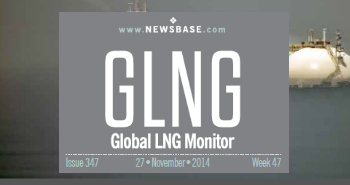IEA projects 25% growth in Europe's LNG imports this year
_Cropped_1_0.jpg)
The International Energy Agency (IEA) has forecast a 25% year-on-year increase in European LNG imports in 2025, driven by reduced pipeline deliveries and rising domestic demand across the continent.
The surge in European LNG demand comes as the region seeks to offset declining pipeline gas imports, particularly from Russia and Norway, and maintain energy security amid tightening global supply conditions, the IEA said in its latest quarterly gas market report. Russian gas transit via Ukraine stopped on January 1 after the expiry of Moscow and Kyiv’s contract, while Norwegian authorities are projecting a 5% decline in natural gas production this year.
Europe’s increased demand for flexible LNG cargoes is expected to outcompete Asia, where LNG imports are projected to decline owing to limited supply availability and elevated prices.
According to the IEA, global natural gas demand growth is expected to slow to approximately 1.5% in 2025 amid macroeconomic uncertainty and constrained market fundamentals. Weaker LNG output growth and reduced Russian pipeline exports to the EU have kept global supply tight, leading to higher reliance on storage and strategic reserves.
The report highlights that following the 2022-2023 gas supply crisis, demand returned to structural growth in 2024, supported by colder weather in Europe and North America. European gas consumption rose nearly 10% y/y as a result of lower renewable electricity generation, while in North America, a severe winter pushed consumption to record highs.
In contrast, Asia experienced a slowdown in gas demand growth in 2024, with China’s consumption falling around 2% y/y because of milder weather and elevated LNG spot prices. Across the Eurasian region, including Russia, gas consumption declined by an estimated 3% as a result of a mild winter.
In Europe, the shortfall in pipeline gas volumes led to increased use of underground storage facilities. The EU saw net gas storage withdrawals rise by over 50% y/y during the November-March period, accounting for more than 30% of regional demand. Similarly, in the US, higher consumption drove a 40% increase in storage draws compared with the previous year.
The IEA and the UK government are scheduled to co-host an international Summit on the Future of Energy Security in London on April 24-25, aimed at addressing ongoing supply risks and strategies to stabilise global gas markets.



Follow us online